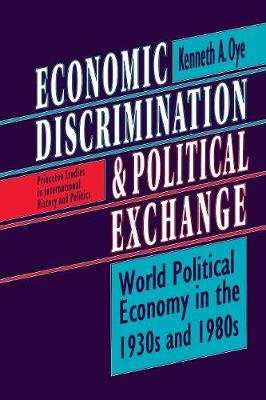Did bilateral and regional bargaining choke off international commerce and finance in the 1930s and prolong the Great Depression? And is the open world economic system now being placed at risk by explicitly discriminatory practices that erode respect for the GATT, the IMF and the IBRD? Most political economists would answer in the affirmative, warning that bilateral and regional preferences are at best inefficient and at worst catastrophic. By contrast, Kenneth Oye shows how economic discrimination can foster international economic openness by facilitating political exchange. Preferential policies, of course, benefit the parties to agreements at the expense of third parties. Oye demonstrates that the expected benefits of inclusion and the expected costs of exclusion play a pivotal role in broadening antiprotectionist domestic coalitions and in drawing third nations into liberalizing international negotiations.
In his view, explicit economic discrimination in the 1930s slowed and ultimately reversed the movement toward economic closure and discriminatory arrangement under Super 301, Canadian-American free trade and the European Community Single Integrated Market reduced barriers to international movements of goods and capital in the 1980s.
- ISBN10 0691078491
- ISBN13 9780691078496
- Publish Date 15 July 1992
- Publish Status Out of Print
- Out of Print 29 October 2001
- Publish Country US
- Imprint Princeton University Press
- Format Hardcover
- Pages 252
- Language English
- URL https://press.princeton.edu/titles/5025.html
